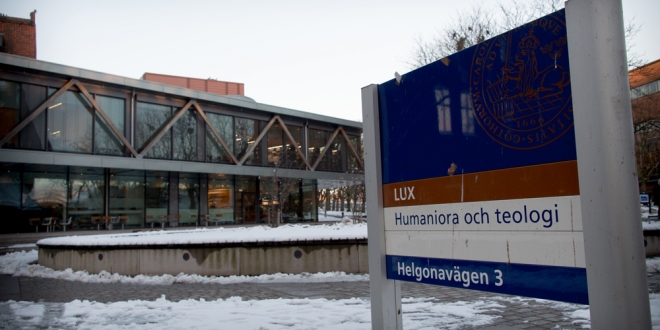Usually, about 20 doctoral student positions are advertised, but at the moment there is an admission freeze in doctoral positions that are funded by the Faculties of Humanities and Theology.
By: Lisa Bergenfelz Translated by: Cecilia Eriksson
The freeze will last throughout 2017 but will not affect the doctoral positions that are not funded by the faculties, or any of the eights positions that are already advertised at the University web page.
The reason for the decision is poor finances in the Faculties of Humanities and Theology. The decision was made by the Faculty Board in November last year and is estimated to save about 38 million Swedish kronor over a period of four years – the equivalent of about 20 doctoral student positions.
“This decision was made so we wouldn’t have to let any of our current staff go, but also because a one-year freeze will have huge effects on savings,” says Samuel Byrskog, Pro-Dean of the doctoral education at the Faculty of Humanities and Theology.
This Doctoral freeze will hugely affect the environment of both doctoral students as well as scientists, according to Emma Sundkvist, head of the Humanistic and Theological Doctoral Student Council (HTDR).
“Some subjects only have a few doctoral students, a lot of which will defend their dissertations this year. Hence, the number of doctoral students will be a lot smaller which will affect the scientific climate in terms of seminars and collegial exchange. It will also make it more difficult to find doctoral representatives for the different boards and bodies of the Faculty of Humanities and Theology,” says Emma Sundkvist. The doctoral freeze is temporary and Samuel Byrskog says it is estimated to end in 2018, so next year we will be “up and running again”.
“This is something HTDR will keep a close watch on during next year’s budget preparations,” says Emma Sundkvist.
The freeze will not only affect the scientific environment at the different faculties, but will also affect the students – especially the master’s students who were hoping to apply for a doctoral education.
“I am a master student myself and might have hoped for a chance to apply for a position at a doctoral education,” says Amanda Bjernstedt, head of the Humanities and Theology Students’ Union.
“Considering the fact that education is supposed to be closely connected to scientific research, this also affects the education itself at the different institutions. In many cases, students at both beginners and advanced levels take classes together with doctoral students and collaborate with the master’s students on their research projects. With fewer doctoral students this might be negatively affected,” says Amanda Bjernstedt.
Samuel Byrskog, Amanda Bjernstedt and Emma Sundkvist all point to the fact that the rationing of Governmental funds is based on a system that negatively affects the Faculties of Humanity and Theology. An issue that has previously been covered by Lundagård. The Governmental funds for the faculties are calculated according to a system where costs for humanities and theology is estimated to be less than for medicine and natural sciences, for example.
The Faculties of Humanity and Theology has suffered from a long financial imbalance within the field of research and has previously been forced to make other kinds of saving decisions. Apart from the doctoral freeze, there is currently also a promotional freeze in effect, and there are fewer positions available for research assistants and post-docs.
“Indeed, it is unfortunate to have to make this kind of a decision, but our faculties do not get enough compensation for the inevitable increase in expenses that, for example, occur because of higher wages. That forces us into a position where we must make drastic decisions. That is where we are now. For us, the situation is quite dire,” says Samuel Byrskog.






